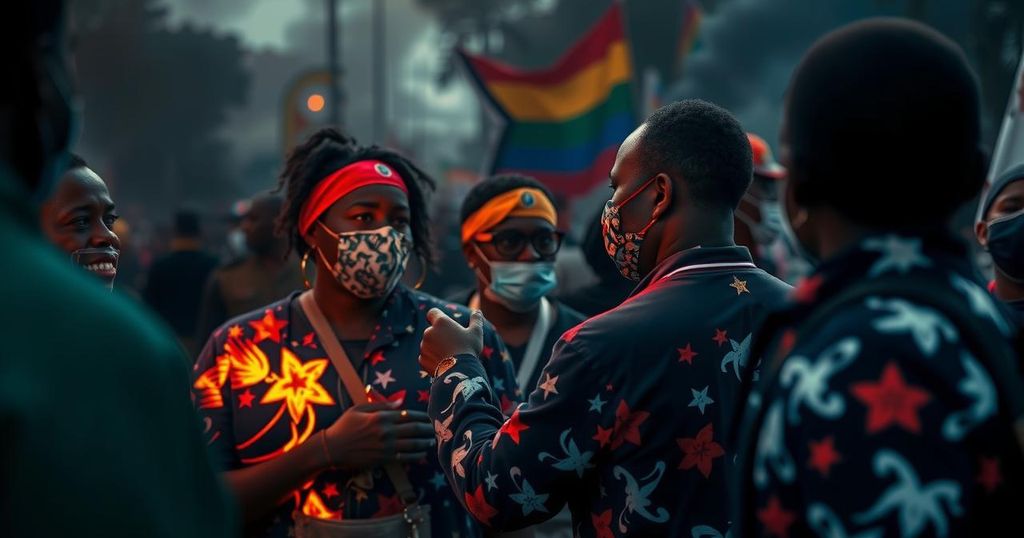Mozambique is experiencing social media restrictions as protests erupt over disputed election results from October 9. Opposition leader Venancio Mondlane’s calls for demonstrations have intensified since the electoral commission declared Frelimo candidate Daniel Chapo the winner. An internet blackout was previously imposed, following protests that turned violent, resulting in casualties. These events have led to a weeklong strike across the country as citizens express their dissent.
Mozambique is currently facing significant disruptions in social media communication as a result of a nationwide strike initiated by opposition leaders. This strike is a response to the contentious results of the general elections that took place on October 9. According to the organization NetBlocks, recognized for its monitoring of internet accessibility globally, access to major social media platforms such as Facebook, WhatsApp, and Instagram has been completely restricted since early Thursday morning. NetBlocks confirmed the imposition of these restrictions, reporting a comprehensive blockade on social media communications amid the widespread calls for public demonstrations. Last week, just one day after the electoral results were disclosed, the authorities enforced a temporary shutdown of internet services, which they justified as a measure to combat escalating violence during protests. Approximately 17 million voters participated in the elections, which concluded with the announcement of Daniel Chapo, the candidate from the ruling party Frelimo, as the victor, garnering 71% of the votes, while his opponent Venancio Mondlane secured 20%. Since the declaration of these results, Mondlane and his supporters have been vocal in contesting the legitimacy of the election results, culminating in the initiation of the strike on Thursday. Human Rights Watch has reported fatalities and injuries resulting from the unrest associated with the election, noting that at least 11 individuals have lost their lives and over 50 have sustained injuries during the violent protests following the announcement of the election outcome.
The current situation in Mozambique arises from the national elections held on October 9, where approximately 17 million individuals cast their votes. The post-election period has been marred by violence and civil unrest, primarily due to allegations of electoral fraud and the suppression of opposition protests. The ruling party’s swift announcement of Daniel Chapo’s victory, along with a significant margin of votes, has faced strong dissent from opposition groups who are demanding accountability and transparency in the electoral process. This dissatisfaction has prompted leaders to call for a nationwide strike and demonstrations, which the authorities have responded to with internet disturbances and warnings against public dissent. The ongoing unrest reflects broader implications for political stability and civil liberties in Mozambique, highlighting the fragile nature of democratic processes in the region.
In conclusion, Mozambique is experiencing significant turmoil following controversial election results that have sparked a nationwide strike and widespread unrest. The government has responded by limiting access to social media platforms, as reported by NetBlocks, which has hindered communication among citizens seeking to protest against the alleged electoral misconduct. The situation has resulted in tragic outcomes, including casualties and injuries during clashes, underscoring the urgent need for dialogue and resolution in the face of escalating tensions.
Original Source: www.aa.com.tr






